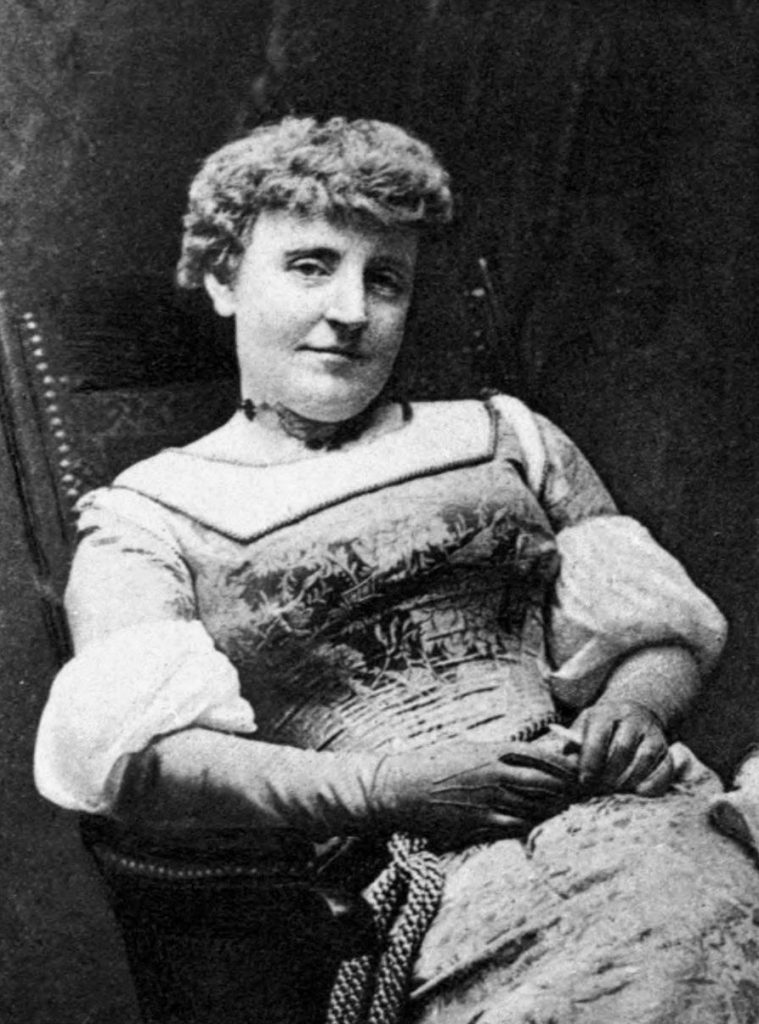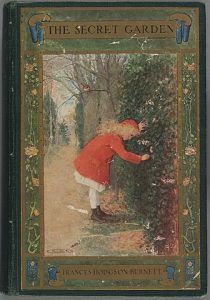DP writes: “What do you know about the book, The Secret Garden? Is it true that the author was into the New Age and the occult?”
The Secret Garden, written by Frances Hodgson Burnett, is indeed problematic as Ms. Burnett was very much into the New Thought movement (which later became the New Age movement) and was quite comfortable dabbling around in the occult. She rejected traditional religion and explored alternative “realities” so it’s not surprising that this worldview can be found in her writings, including the enormously successful book/movie, The Secret Garden.
For those who know nothing about this author, Burnett was born in Manchester, England in 1849 and grew up in poverty. By the age of 18, she was orphaned and left to fend for herself and her four siblings.
A talented writer, she was able to publish a few stories in 1868 and eventually went on to write her first bestseller, Little Lord Fauntleroy in 1886, which made her one of the highest paid women of her era.
Married twice and the mother of two sons, the death of her eldest son, Lionel, from tuberculosis in 1890, appears to have been the inspiration behind The Secret Garden which some view as a tribute to him.
At the time, Burnett was already heavily involved in the New Thought movement.
“In many ways, Frances Hodgson Burnett (1849–1924) foresaw the dawn of the ‘Age of Aquarius’ and its stepchild, the New Age/Self-Help era,” writes Michael Francis McCarthy in this meticulously researched treatise on Burnett’s life which was published in 2010.
“More than one hundred years ago Burnett rode the first wave of mind-body theory; she began incorporating ‘New Thought” ideas into her writing and became one of its leading proponents. The author led an intriguing life in the spotlight, saw the connection between the mind and body, and tried to use her fame to popularize the New Thought in the latter part of her career.”
However, Lionel’s death sent her catapulting downward.
“To cope with her grief, she delved deeper into the ‘occult’ after previously exploring the tenets of Spiritualism, Theosophy and Mary Baker Eddy’s Christian Science, amongst other late-nineteenth-/early-twentieth century millennial philosophies. . . . We can therefore view The Secret Garden as a tribute to her dead son and as a wake-up call to the world about the ‘Beautiful Thought’ (as she preferred to call the New Thought movement) — that people can heal themselves through positive thinking and affirmations, and that ‘all is one.’ After Lionel’s death, it became part of her life’s mission to spread the ‘Beautiful Thought’ to the masses. The Secret Garden was her vehicle,” McCarthy explains.
The story of The Secret Garden revolves around a young girl named Mary Lennox who is orphaned when her parents are killed in an earthquake in India. She’s sent to live with her uncle, a dark and depressing man who is enveloped in grief since the death of his wife. He leaves her mostly on her own in his cold manor house in Yorkshire, England, where she quickly discovers that she has an invalid cousin around her own age who is kept locked up in a room due to a strange illness. Mary eventually stumbles upon the secret garden which was once kept by her uncle’s wife and, together with another new friend named Dickon, begins to restore it. In the movie, there is a scene where Mary and Colin use magic to conjure up his father, who is away from the manor at the time. The spell works and brings her uncle back just in time to see his invalid son running around the garden, playing with Mary and Dickon.
From what I’ve read, spell casting is part of the book as well as the movie. For instance, this scene describes the so-called “white magic” the children were using in the garden.
” . . . (W)hen Mary told him of the spell she had worked he [Colin] was excited and approved of it greatly. He talked of it constantly.”
Colin goes on to pronounce magic as “a great thing and scarcely any one knows anything about it except a few people in old books . . .”
That there would be are scenes involving magic in the story is not surprising as Burnett was a big believer in sorcery as well as a host of other unconventional “religions”.
Two years after she wrote The Secret Garden, she told a reporter: “I am not a Christian Scientist, I am not an advocate of New Thought, I am not a disciple of the Yogi teachings. I am not a Buddhist. I am not a Mohammedan. I am not a follower of Confucius. Yet I am all of these things.”
Suffice to say, there are many issues concerning The Secret Garden that Christians should be aware of and take into consideration before allowing themselves -or their children – to read the book or watch the movies.
© All Rights Reserved, Living His Life Abundantly®/Women of Grace® http://www.womenofgrace.com
Send your New Age questions to newage@womenofgrace.com











